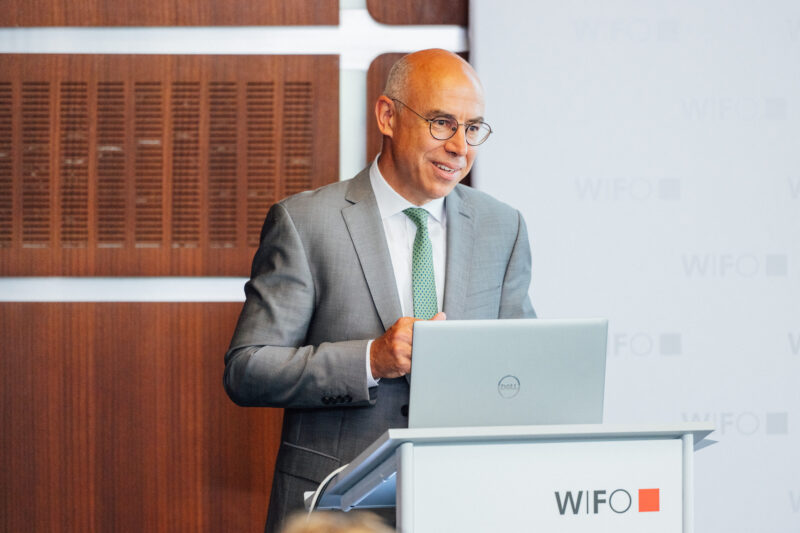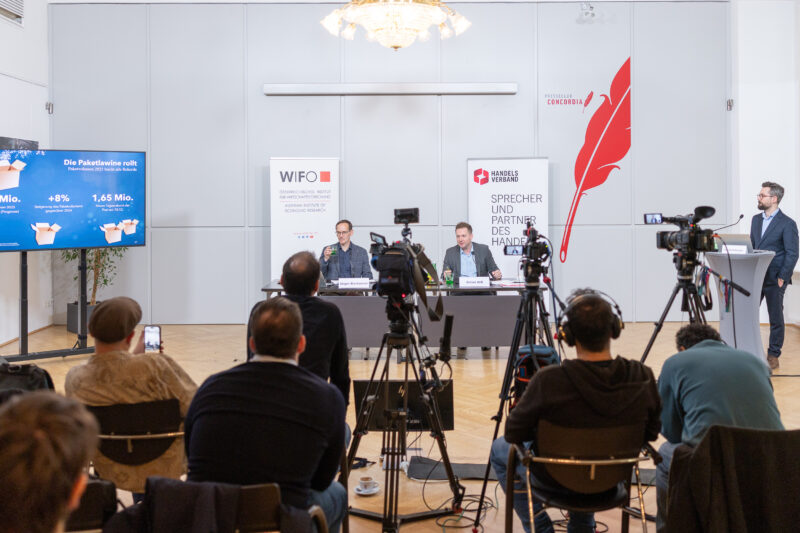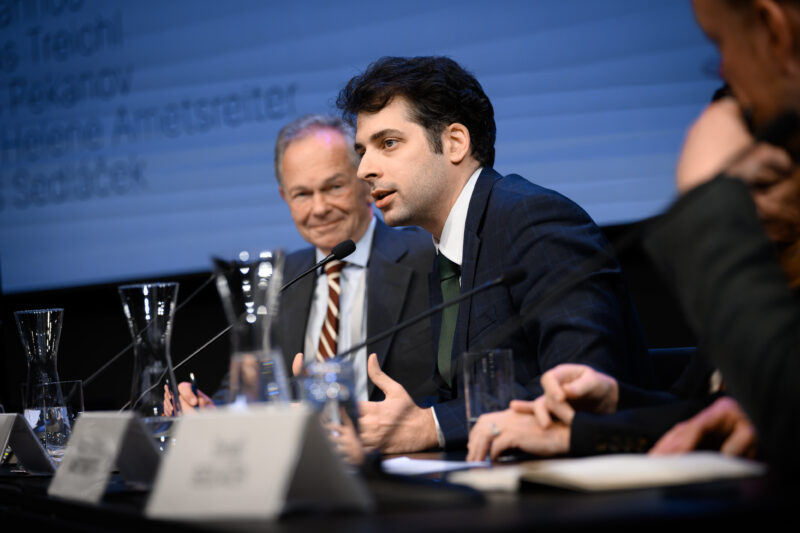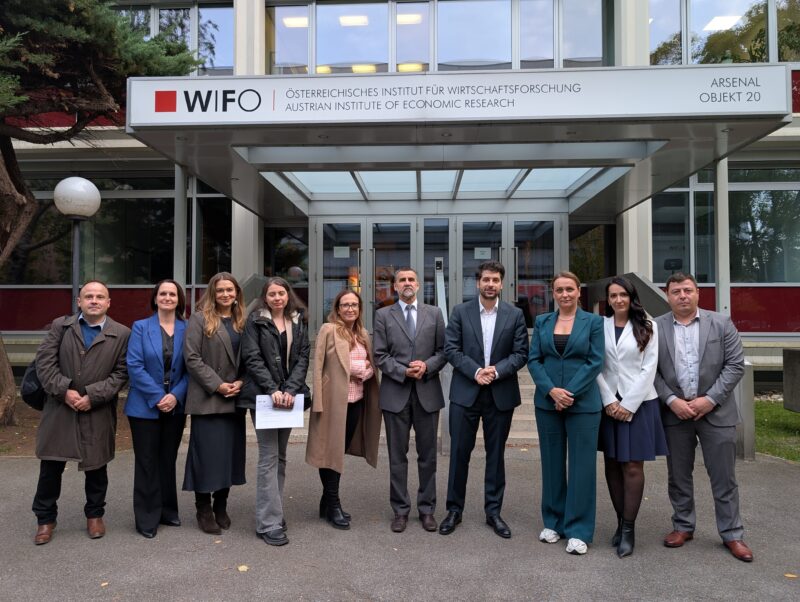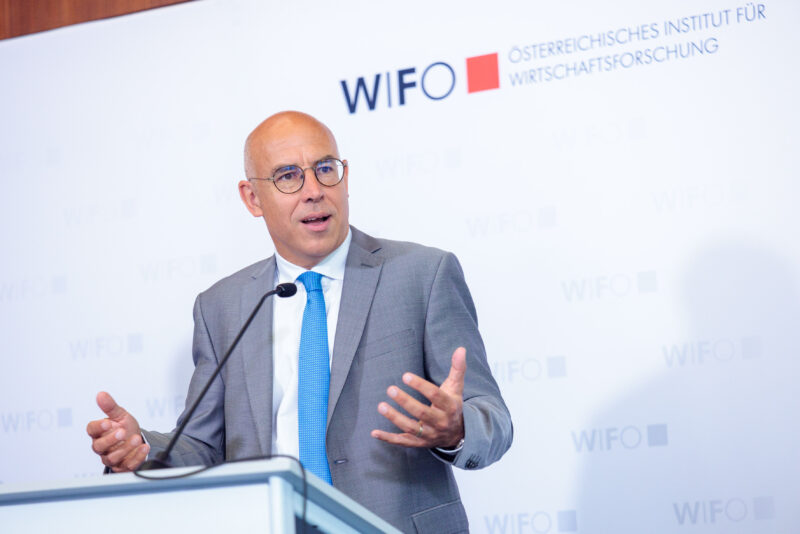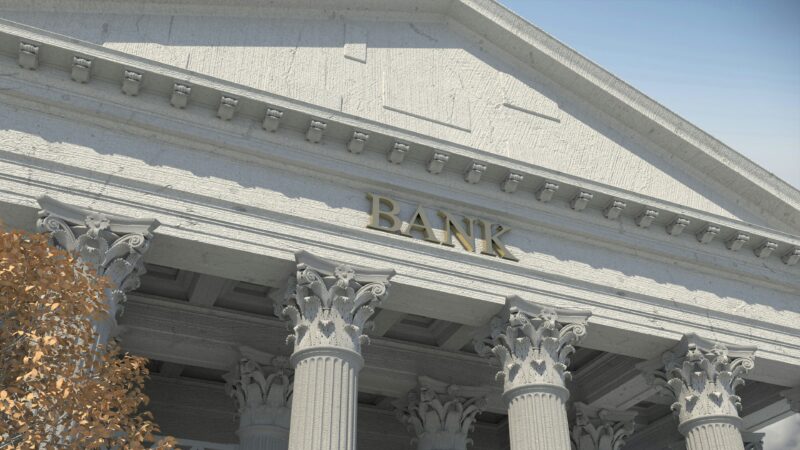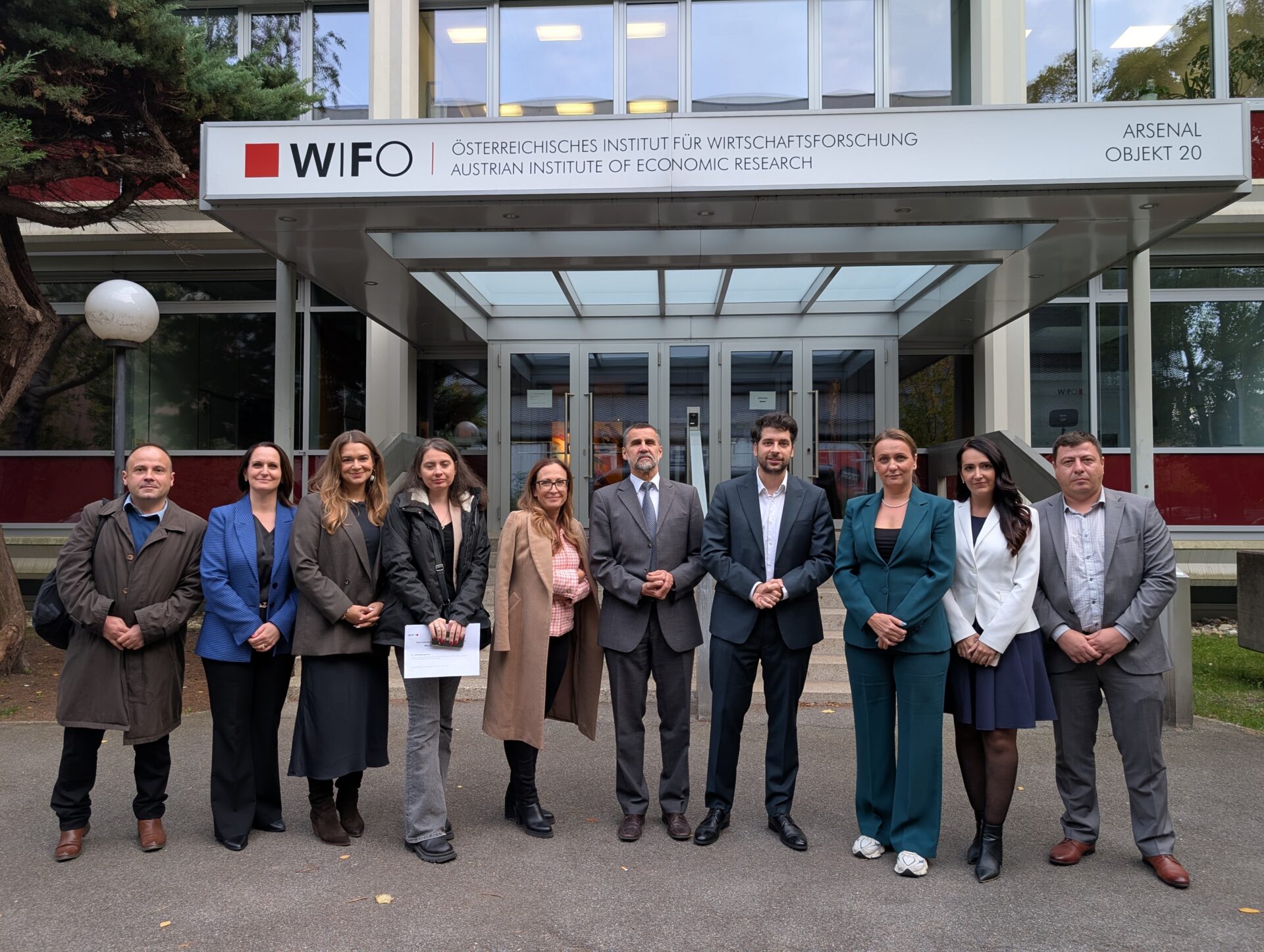
Bulgaria Joins the Euro in 2026
The WIFO economists Atanas Pekanov, Josef Baumgartner, and Thomas Url participated in the discussion. Pekanov served as Deputy Prime Minister of Bulgaria from 2021 to 2023, responsible for EU funding. His portfolio included the negotiation and implementation of Bulgaria's Recovery and Resilience Plan, as well as the co-coordination of the euro adoption process.
Pekanov, Baumgartner, and Url provided insights into the economic policy developments surrounding Austria's euro introduction and its long-term effects on prices and the overall business cycle. The WIFO economists emphasised that sound economic fundamentals and broad public acceptance were key factors for a successful transition to the common currency. The Bulgarian journalists showed great interest in how the euro is perceived in Austria and in the developments in prices, interest rates, and competitiveness since its introduction.
"While the technical transition from schilling to euro was highly successful, the cash changeover period required some time for consumers to adjust to the new currency. Although aggregate inflation did not increase significantly after the euro introduction, many citizens perceived the euro as contributing to higher prices – since the prices of certain everyday goods indeed rose while others declined."
"In this respect, Bulgaria has the advantage of a much simpler exchange rate of 1.95 leva to 1 euro, compared with the 13.76 schilling per euro in Austria, which made the changeover considerably more complicated", explained Pekanov.







